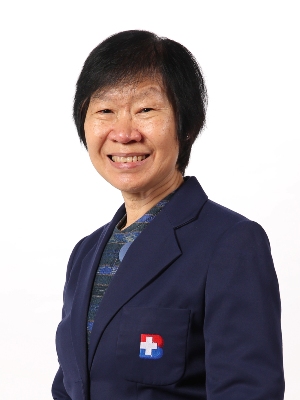Currently, it is found that children in pre-kindergarten and kindergarten are at an increased risk of exhibiting behaviors similar to autism, mainly due to the way they are raised. However, behaviors that are similar or identical to autism can be prevented and corrected if parents are aware and take close care of their children.
What are autism-like behaviors?
Autism-like behaviors, often referred to in the media as “pseudo-autism,” occur when a child lacks “stimulation” in two-way communication, resulting in abnormal communication with others. This is because the parents or caregivers lack interaction with the child, such as not talking or playing with the child, but letting the child play with communication devices like tablets and smartphones. These devices only offer One – Way Communication, leading to abnormal social development in the child.
Autism VS Pseudo-autism
Autism is caused by a brain abnormality in children from the womb, while pseudo-autism is primarily caused by a “lack of stimulation.” Although the two conditions may exhibit similar symptoms, children with pseudo-autism can return to normal if they receive “appropriate stimulation” in a short period of time. Meanwhile, children with autism will continue to have behaviors different from normal children, even after receiving developmental stimulation training. However, children with autism can significantly improve their development and behavior if given the appropriate stimulation.
Make sure to check your child for autism symptoms
Age |
Symptoms |
| 6 months | Does not smile or show joy |
| 9 months | No babbling, smiling, facial expressions, or back-and-forth sharing |
| 12 months | Does not respond to name, does not play peek-a-boo |
| 18 months | No pretend play, does not use speech with gestures |
***Children with these symptoms are at risk of being autistic, and to be certain whether a child is autistic or has autism-like behaviors, they should be examined by a developmental pediatrician.
Raising a child far from autism-like behaviors
To raise a child far from autism-like behaviors, parents can do the following:
- Talk to your child often
For young children, speak slowly and clearly to help them learn pronunciation and mimic caregiver behavior. At least, talk to the child for 30 minutes – 1 hour a day to establish Two – Way Communication, allowing the child to learn vocabulary for communication, as well as learn how to interact with adults – children, teacher – student, and friends – friends. Also, provide opportunities for children to play with each other.
- Keep the child away from smartphones
During the first 1.5 years of raising a child, do not give the child smartphones or tablets to play. For children after 1.5 years, if you allow them to play, it must not exceed 1 hour per day, and avoid letting the child play alone. At the same time, provide love and warmth, as well as promote skills development through play to enhance brain and physical development, like building blocks, threading, coloring, kneading dough, kicking a ball, riding a bicycle, etc.
Autism-like behaviors, know early, recover quickly
If a child exhibits autism-like behaviors, parents should not worry because it can be fully and quickly rectified if identified early. Generally, children found to have autism-like behaviors, if treated correctly, will improve within 6 months and return to normal.
For parents or guardians who are uncertain or unsure whether their child is autistic or has autism-like behaviors, it is recommended to have the child undergo a developmental check-up with a specialist for correct diagnosis, and not to be complacent because the first 5 years is the period when a child’s brain fully develops, necessitating prevention and timely treatment.
Every child’s problem has a solution at the “Child Development Clinic, Pediatric Center”
You can take your child to participate in the child development screening program by specialists at the Child Development Clinic, Pediatric Center, including:
- Basic child development screening program
- Developmental level assessment program for children of various ages
- Developmental level assessment program for children of various ages, management skills, pre-academic skills, and children’s learning skills (Pre – Academic Skills)
Developmental assessment tools
- ASQ tools
- Denver II tools, Mullen Scale of Early Learning as standard tools
- BRIEF-P tool, which can present results as scores at various levels, compared with international standard scores, providing clearer and more accurate results than other screening tests
Supported by a professional multidisciplinary team, including
- Child and adolescent psychiatrists
- Pediatricians specializing in development and behavior
- Occupational therapists
- Speech therapists or special education teachers for behavioral adjustment and developmental stimulation to help children with issues return to normal and grow appropriately
Wouldn’t it be nice? If you could enhance your little one’s potential to learn and develop fully.










